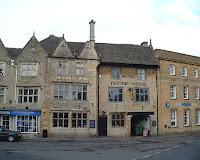How to Protect against Witches

Above the back door of my house I have a horseshoe fixed to the wall. I knew that this was a good luck symbol but until very recently I had no idea that it was also a throwback to our ancestors' desire to protect their property against witches, ghosts, fairies and demons. Apertures such as windows and doors symbolised ways of entry and therefore the place where a house was vulnerable to bad spirits, so offerings would often be placed near doorways or under the front step.
Other impressive charms to ward off witches include the basket found behind the hearth of a house that contained a candlestick, a goblet, two shoes and various very dead chickens. Witches were also believed to attack a house via the hearth and chimney so witch bottles were often found in these places. We found a witch bottle in our 17th century cottage in Somerset. It was buried inside the inglenook fireplace and contained a dark sludgy liquid that was probably a mixture of urine and blood. Apparently witch bottles could also contain hair, nails and any other body part or fluid that you felt might help bring you individual protection against evil spirits!
Another superstition I came across when reading up about ways in which to ward off bad spirits was the idea of the "Witch wood." This was wood cut from the rowan tree and it could be nailed on the window sill or above the front door. It's interesting to me that we have a rowan by one gate into our garden and rosemary by the other gate. Rosemary, like the horseshoes, is a way of attracting positive forces and welcoming friends. So it seems we have a very nice combination of protection and positive energy. What is particularly interesting is that whilst the offence of Witchcraft was abolished in England in 1736, these old country traditions and susperstitions have survived. (Amendment: Thanks to Traxy's comment I have now checked my sources and see that The Witchcraft Act was brought in in 1736, not repealed, which makes a great deal more sense!)



Comments
From what I've gathered, there was still some sort of witchcraft act still in force during World War II as a spiritualist medium got prosecuted under some form of witchcraft act. Something along those lines.
The protections in our Somerset house certainly did not appear to trouble the resident ghost.
Interesting about the Helen Duncan case. I'd forgotten all about that. Now I come to check it, it seems that the Witchcraft Act was brought in in 1735, not abolished, which makes more sense. (Tut, and I thought my sources for the abolition date were impeccable!) It was repealed in 1951. No wonder superstition is so entrenched when it was law until less than 100 years ago!
Helen Duncan is a fascinating case, and the whole thing was just ridiculous. "She knows military secrets but she has no way of knowing them... she must be a witch!" Sometimes, there are things we just don't know.